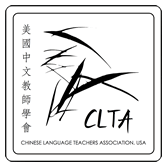SIG – Context-based Inter-disciplinary CFL Curriculum: Research and practice
https://lifelongcfllearning.wordpress.com/about/
https://www.facebook.com/groups/cbidcfl/
Description
Our SIG is concerned about designing and implementing CFL curriculum and instruction that can effectively prepare learners for continuing lifelong learning of Chinese beyond the CFL program.
We believe the real subject of CFL teaching is communication – the complex and dynamic processes embodied as coordinated behaviors among participants. These processes are irreducible to observable verbal and non-verbal behaviors. An individual’s behavior is a complex system integral to multiple larger complex systems, including social systems, semiotic systems, and ecosystems. All these systems have existed before the emergence of modern writing systems. In light of the dynamic and complex nature of communication, we believe effective CFL instruction should aim at orienting one’s behavior toward Chinese-speaking contexts instead of merely “mastering” the observable verbal and non-verbal behaviors.
We intend to situate our profession in a broader academic field and draw implications from other communication-related disciplines, including biology, psychology, anthropology, neurosciences, cognitive science, sociolinguistics, rhetoric studies, information theory, systems theory, game theory, and theories of mind and culture.
We believe language pedagogy is inherently interdisciplinary. We welcome researchers and practitioners in all fields to share experiences and discoveries that may have implications for effective CFL teaching and learning at all levels.
Activities
- Weekly online discussion threads: e.g., Whether/How the Taoist ideal of “不言之教” may inform foreign language instruction?
- Sharing effective contexts for eliciting particular intended communicative behavior from learners: e.g., How do you elicit the use of sentence final particle “呢” from first-year learners in classroom interaction?
- Organizing online reading groups for members to converse about implications drawn from one’s field of interest, such as biology, game theory, etc.
- Sharing research interests and findings
- Sharing teaching resources, such as useful links, TV programs, movies, cultural event ideas, conversation club activities, etc.
- Collecting cases of cross-cultural miscommunication in Chinese
- Annual meeting at CLTA-ACTFL convention to discuss potential collaborative research and material-development projects
Leadership
Leader: Jianfen Wang 王建芬, Assistant Professor of Chinese and Asian Studies, Berea College, Email: wangj@berea.edu
Associate Leader: Zeng, Zhini, Assistant Professor of Chinese, University of Mississippi
